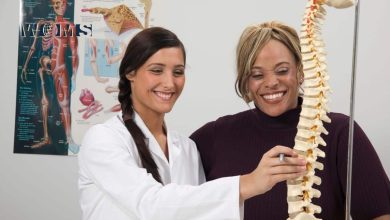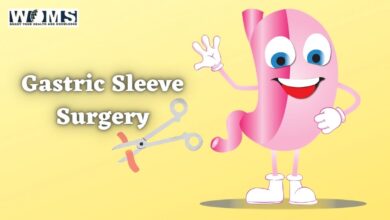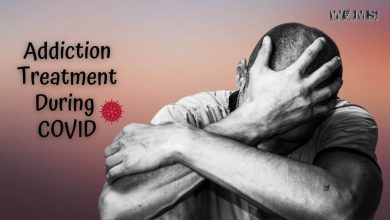Mental Health After a Road Accident: Coping Strategies and Support Systems

The aftermath of a road accident often extends far beyond physical injuries. While physical recovery is usually the primary focus, the impact on mental health is an equally critical aspect that often goes unrecognized. Survivors of road accidents, including severe incidents like truck accidents, can experience profound psychological effects. These effects can disrupt their daily lives, relationships, and overall sense of well-being. This article underscores the importance of addressing mental health as a fundamental part of the recovery process after a road accident. It aims to provide insight into the psychological consequences of such incidents and offer guidance on coping strategies and available support systems.
Understanding the mental health implications following a road accident is crucial for a holistic recovery. The trauma of the event can leave lasting emotional scars, which, if ignored, can hinder the recovery process. Acknowledging and addressing these psychological impacts are as vital as treating physical injuries. This article explores the range of mental health issues that can arise post-accident and offers practical advice for coping and seeking support.
Understanding the Psychological Impact of Road Accidents
The psychological aftermath of a road accident can manifest in various forms, with post-traumatic stress disorder (PTSD), anxiety, and depression being among the most common. These conditions can surface immediately after the accident or may develop over time. Survivors often relive the traumatic event through flashbacks and nightmares, leading to a constant state of heightened anxiety and fear. Additionally, the sudden and violent nature of road accidents, especially severe ones like truck accidents, can exacerbate these psychological impacts, making the recovery process more challenging.
It’s important to understand that the severity of the accident doesn’t always correlate with the intensity of the psychological impact. Even minor accidents can trigger significant emotional distress in some individuals. Factors such as personal history, pre-existing mental health conditions, and the presence of chronic pain can influence the psychological response to a road accident. Acknowledging the wide range of potential psychological responses is essential in providing appropriate care and support.
Early Signs and Symptoms to Watch For
Identifying the early signs of mental health issues following a road accident is crucial for timely and effective intervention. These signs can vary but often include persistent feelings of anxiety or sadness, trouble sleeping, and changes in appetite. Survivors might also experience mood swings, irritability, and a loss of interest in activities they once enjoyed. More specific to road accidents, individuals might develop a phobia of driving or traveling in vehicles, leading to avoidance behaviors that can significantly impact daily functioning.
Survivors and their loved ones must be vigilant about these symptoms, as early detection can lead to better outcomes. Seeking professional help at the first signs of such distress is crucial. Mental health professionals can accurately diagnose and recommend appropriate treatment, including therapy, medication, or a combination. Early intervention can prevent these symptoms from escalating and aid a smoother recovery process.
Coping Strategies for Mental Health Recovery
Developing effective coping strategies is essential for managing mental health after a road accident. Mindfulness techniques, such as meditation and controlled breathing, can help in reducing anxiety and stress. These practices encourage focusing on the present moment, which can be particularly beneficial for those struggling with intrusive thoughts and flashbacks related to the accident. Journaling is another helpful tool that allows individuals to express their thoughts and emotions, facilitating the processing of the traumatic event.
Supportive therapy, whether individual, group, or family-based, plays a vital role in recovery. Professional counselors or therapists can offer guidance and strategies for dealing with emotional pain and trauma. Support groups provide a platform for sharing experiences and feelings with others who have undergone similar ordeals, fostering community and understanding. Engaging with these support systems can significantly enhance coping and aid in emotional healing.
The legal and insurance processes following a road accident can be overwhelming, adding to the stress and anxiety already experienced by the victim. This is particularly true in cases involving truck accidents, where legal proceedings can be more complex due to the involvement of commercial entities. The process of filing insurance claims, dealing with potential lawsuits, and seeking compensation can be daunting and emotionally taxing for accident survivors.
To alleviate this burden, it is advisable to seek legal assistance. A knowledgeable attorney can navigate the legal complexities, allowing the survivor to focus on their mental and physical recovery. Legal professionals can handle communications with insurance companies, gather necessary documentation, and guide the best action. Reducing the stress associated with these processes can positively impact the individual’s overall mental health and well-being.
The Role of Family and Community Support
Family and community support is invaluable in the mental health recovery process following a road accident. The presence of a supportive network can provide comfort, understanding, and practical assistance during this challenging time. Family members and friends can play a critical role by offering a listening ear, encouraging the survivor to seek professional help, and providing reassurance and emotional support.
Open communication is critical to ensuring that the survivor feels heard and understood. Family and community members should also educate themselves about the effects of trauma and the best ways to support their loved ones. Establishing a solid support network not only aids in the survivor’s recovery but also enhances the community’s resilience and coping capacity.
Long-Term Mental Health Care and Support
For some individuals, the effects of a road accident can be long-lasting, necessitating ongoing mental health care and support. Long-term care may include continued therapy, medication management, and regular check-ins with mental health professionals. This sustained support is crucial for individuals who experience chronic symptoms or have developed severe conditions like PTSD.
Continuous care ensures that the individual’s mental health needs are being addressed over time, adapting as their situation evolves. Regular follow-ups with mental health professionals allow for the monitoring of progress and the adjustment of treatment plans as needed. This long-term approach is essential for ensuring lasting recovery and maintaining mental well-being.
Addressing mental health is a vital part of the recovery process after a road accident. Recognizing the signs of psychological distress, seeking timely professional help, and utilizing coping strategies and support systems are crucial steps in overcoming the trauma of such an event. Survivors, their families, and communities need to understand the impact of these incidents and work together towards holistic recovery.




